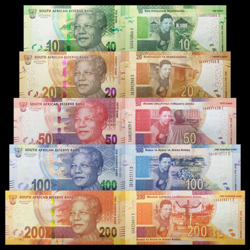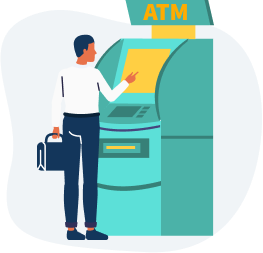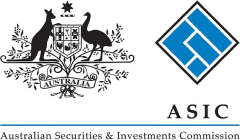Currency in South Africa
A Travel Money Guide to South Africa
There are so many reasons to visit South Africa including Kruger National Park, Table mountain in Cape Town, the amazing scenery along the Garden Route and the Drakensberg mountains.. Even though South Africa is a moderate budget destination, it’s a good idea to learn everything you can about the local currency and payment options before you go.
The currency that is used in South Africa
In South Africa, the currency that locals use is the South African Rand.
The official currency in South Africa is also the South African Rand, which has the international code ZAR and the symbol R. There are 5 different South African Rand banknotes, they are: R10, R20, R50, R100 and R200.
The South African Rand can be divided in to 100 cents. In South Africa they have 5c, 10c and 20c. In addition there are also 3 dollar coins, R1, R2 and R5.
As with many other countries (in Europe particularly), some places do not accept the R200, because they don’t have change or there is a higher chance of counterfeit money.


Using Your Bank Card in South Africa
Most South African businesses are well set up to receive card payments. The best cards for South Africa do not charge an ‘international transaction fee’ and before you use your bank card willy-nilly, it’s worth reading up on the fees and charges you might incur.
Debit Cards
You’ll probably want a debit card if you plan to withdraw money from an ATM. While you may also be able to pay with a debit card in some businesses in the major destinations, you might discover some hefty fees on your account summary.
Depending on your bank, you could be hit with fees for foreign ATM withdrawals or currency conversions. But some banks are better than others; we recommend checking out Wise, ING and Revolut, all of which have travel-friendly debit cards that waive these charges.


Credit Cards
Credit cards can come with some enticing perks, including added security, loyalty programs, and even free travel insurance.
But are they worth it?
Major local businesses, including hotels, restaurants, airline offices, and department stores, accept credit cards. But you might have to pay a surcharge.
Mastercard and Visa are widely accepted. You may also be able to use your American Express card, though local ATMs won’t accept them.
Just be aware of additional charges you may incur for foreign transactions. These could include:
- International transaction fees
- High exchange rate margins
- ATM fees
- Potential ‘cash advance fees’ if you use an ATM
If you still prefer credit cards over any other payment, consider going with a company that offers cards that waive certain travel fees. Bankwest Platinum and 28 Degrees both have travel-friendly cards.
Prepaid Travel Cards
The biggest advantages of prepaid travel cards are that you can lock in a favourable exchange rate. You also get a handy back-up card.
Just remember that while they are convenient, you could end up paying a long list of hidden fees. Many travel cards still impose:
- Currency conversion fees
- Uncompetitive exchange rates
- International ATM withdrawal fees
- Initial load fees
- Reload fees
- Inactivity fees

How to Buy Rand Before You Go
There’s a certain reassurance that comes with stepping off the plane (or cruise ship) already cashed up with Rand.
Buying Rand before you leave Australian shores isn’t just convenient. It can also save you money. But it all depends on where you get your Rand in Australia. There are 3 main options:
- Buy ZAR online and have it delivered or collect it in-store
- Swap South African Rand from Australian dollars from a money changer
- Buy South African Rand at your home airport
Try S Money or a similar online currency exchange store to get rates that reflect the comparisons you see on XE or Google.
If you choose online delivery or in-store pickup, check the processing time. Some exchange companies with online options suggest you allow between two and five days to process currency.
Prefer in-store currency exchange? Head to the CBD of your nearest city for the most competitive exchange rates; suburban bureau de change outlets tend to have poorer rates and fees.
Currency exchange counters in Australia’s airports are infamous for their atrocious exchange rates. Avoid them if you can.
How Much Cash Should I Bring to South Africa?
Budgeting for your trip gives you a good idea of how much you may need for the length of your stay. This might keep you accountable, help you stretch your savings, or help you avoid having to convert currency back into dollars at the end of your trip.
The average daily travel budget in South Africa is about $95. Some of the expenses you might be looking at include:

$80 per night
A double room in a mid-range hotel

$25
Average lunch for 2

$3
A bottle of beer

$21
Average daily transport

$20
Admission for entertainment
How to Exchange Currency in South Africa
Places like Cape Town, and Durban receive great numbers of tourists, so there are facilities to cater to money exchanges. Beyond these major destinations, it’s best to get cash before you venture into remote territory.

ATMs
South Africa has lots of ATM’s in cities, popular beaches and shopping centres. Plus there are lots of Standard bank, FNB, Barclays and Nedbank ATMs at the O.R.Tambo international airport, making things extra easy.
Your 4 digit pin will work in South Africa and it is advised to cover your hand when entering your pin to prevent card skimming. In addition most banks have a daily maximum you can withdraw, within $300 and $450, so its best to work that into your daily expenses.
Depending on your bank, you may have to pay for overseas ATM withdrawals and currency conversions. To reduce the amount you’ll pay in fees, try to withdraw just the right amount of money you’ll need for the duration of your trip.
Don’t forget: Let your bank know you’re travelling! If they detect a foreign transaction but aren’t aware you’re overseas, they could end up freezing your card.
Currency Exchange in South Africa
In the major cities, there are plenty of places to exchange foreign currency into South African Rand. Rennies and Master Currency are both chains of currency exchangers and there are other independent bureau de changes, who sometimes have a ‘Western Union’ or ‘American Express’ sign in the store front window.
Currency exchangers tend to offer marginally better rates than banks as many banks charge a high flat fees per transaction. Also, banks only exchange currencies on weekdays.


Travellers Cheques
Not worth the bother! Travellers cheques are so outdated, very few banks even accept them any more.
Few places outside the well-trodden tourist path will accept travellers cheques, so your best option is to exchange cheques for cash at a bank.
These days, when pitted up against plastic money and currency exchanges, travellers cheques seem more hassle than they’re worth.


